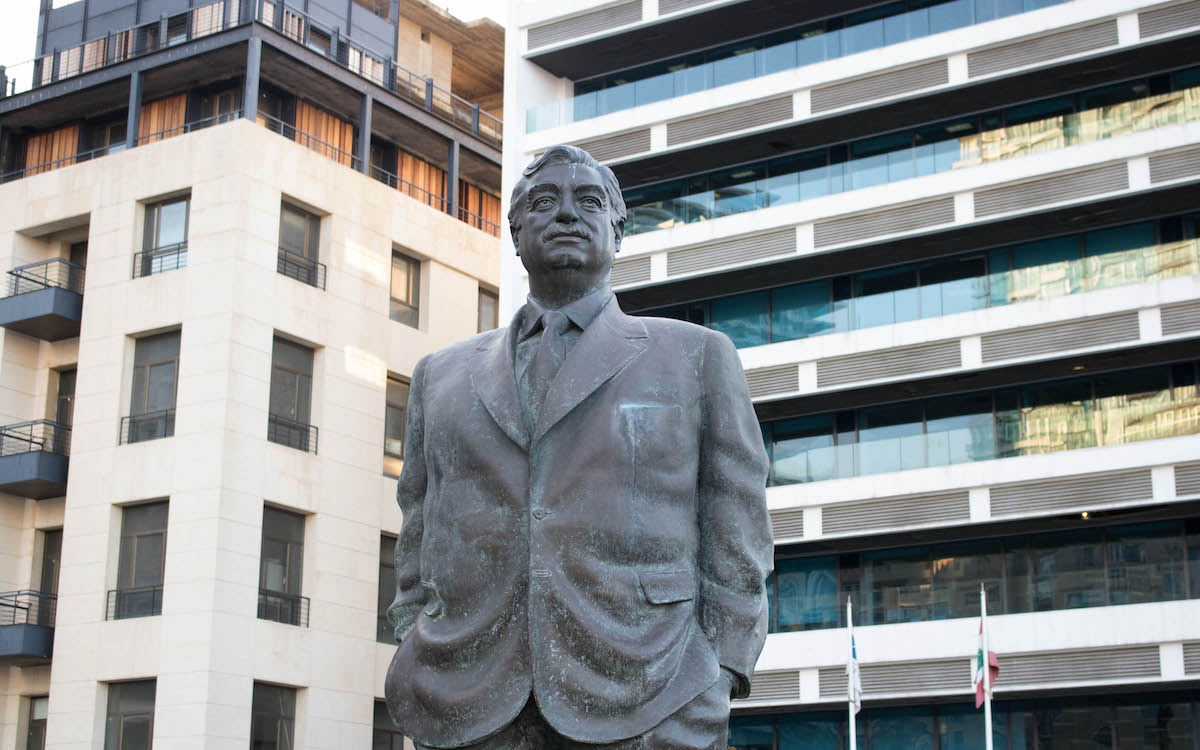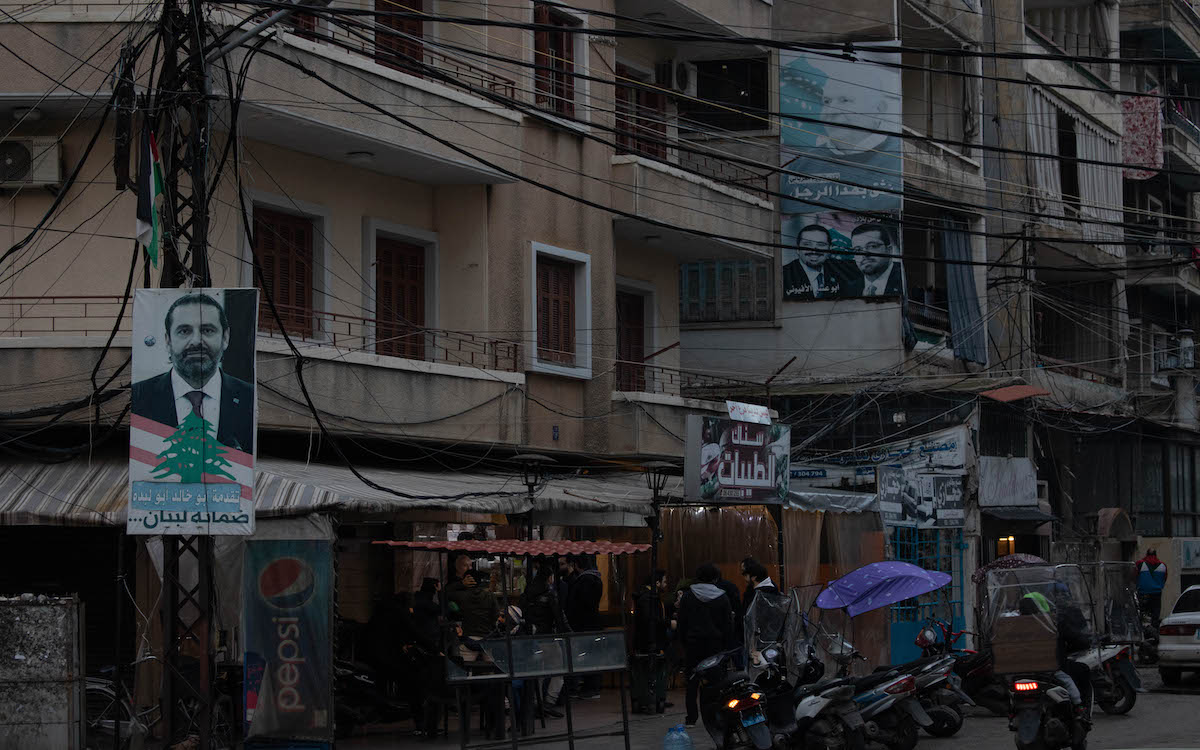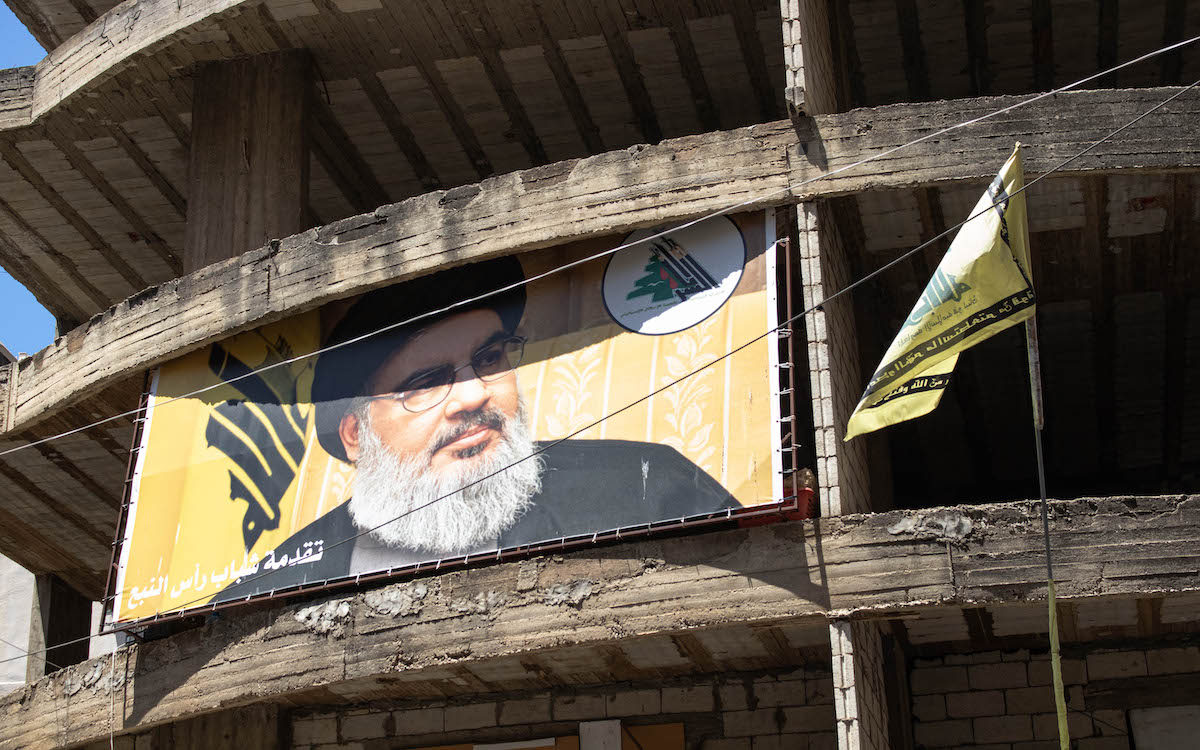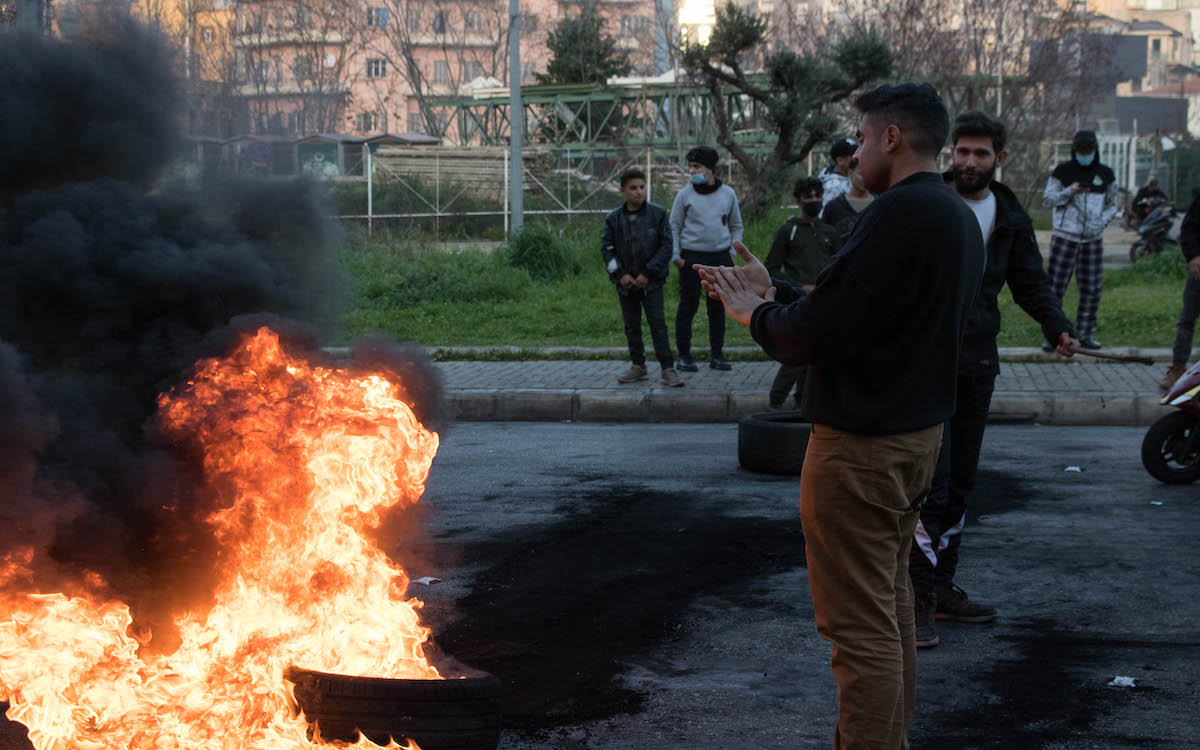
It was 12:55 pm on February 14, 2005 and former Prime Minister Rafik Hariri was in his convoy driving back to his residence from a meeting.
Nothing was particularly strange about the day, as Hariri held regular meetings with his political allies in the lead-up to the parliamentary elections that were too be held later that year.
Hariri had stepped down as prime minister in October the year before and was looking to come back but with a stronger coalition in Parliament this time. Even though he was on the outs with Syrian President Bashar al-Assad, he was sure that the relationship could be salvaged before things worsened.
Those hopes were cut short when Hariri’s convoy passed by the St. George Hotel by the corniche in Beirut.
A massive explosion shook the city when a car bomb went off next to Hariri’s vehicle, killing him instantly along with nearly two dozen others.
The assassination of Hariri came as a shock to the people of Lebanon.
The former prime minister had broad political support throughout the country and even those he was in opposition with could not help but respect the man and work with him.
It has been 18 years since Hariri was killed and, without the unifying power that he possessed, the country has slowly become undone.
“The assassination of Hariri in Lebanese politics was a number of things,” Paul Salem, the president of the Middle East Institute in Washington DC, told NOW. “He was sort of a central anchor in the contradictions and multiple communities of Lebanese politics.”
The disunity of Lebanese politics
Rafik Hariri was often described as a force of nature when it came to Lebanese politics.
It did not matter if he was speaking with Walid Joumblatt from the Druze Progressive Socialist Party or Hezbollah Secretary-General Hassan Nasrallah. He could always find enough common ground so that they could work together.
“Hariri was able to maintain a strong link with the Gulf, with the West and, until the last two or three years, was able to maintain working relations, at the time, with Damascus as well as working relations, with many contradictions, with Hezbollah, able to form governments, able to pass legislation,” Salem explained.
Now, with Hariri gone, that is all lost, he added.
Since his death, no national figure of that weight has emerged, hence every community has sort of been left fending for itself, and there is no national figure that is able to weave the country’s various parties, communities and politics together.
Since his death, Lebanon has not had a strong central figure come forward that has been able to cross the sectarian and political lines and create enough unity within Lebanon’s political theater to get much of anything done.
Where Hariri was able to rebuild Beirut following the 15-year civil war and work to relaunch Lebanon’s economy, many others have continued to fail at forming a government.
“Since his death, no national figure of that weight has emerged, hence every community has sort of been left fending for itself, and there is no national figure that is able to weave the country’s various parties, communities and politics together,” Salem stated. “Also, there is no national figure who has been able to navigate the regional and international challenges of Lebanon.”
This lack of a national figure has been a large factor in the years of political instability that the country has faced.
While government formation in Lebanon has never been an easy process, it has since become an even longer and protracted process that can take months and, in some cases, over a year before there is finally consensus on the makeup of the government.
Hariri’s death was also a crippling blow to the Sunni community in Lebanon.
Besides being a national figure, he was easily the Sunni community’s popular representative.
While the Druze have Walid Joumblatt, the Shiites have the Amal Movement and Hezbollah and the Christians, today, have Samir Geagea and the Free Patriotic Movement, the Sunnis now have no one.
“His son [Saad] kept that going for a while but, where we are today, there is no real clear leader of the Sunni community. He was that without any question,” Salem said.
Saad Hariri became his father’s successor and the face of the Sunni community for years, receiving nearly the same support that his father enjoyed. But, although he remained the clear favorite in the community, that support began to wane as the years went on.
Then, unexpectedly, at the start of 2022, the younger Hariri announced that he would be retiring from Lebanese politics, and that his party would no longer be taking part in elections.
When elections came around in May of that year, Prime Minister Najib Mikati became the Sunni figure receiving the most support, however, the support comes mainly from his home city of Tripoli in the north of Lebanon, and is nowhere near enough to be considered a popular representative for the Sunni community.
Other than that, the Sunni community primarily voted for candidates that they saw as opposition Hezbollah over fears that the Iran-backed group was looking to take over the country.
These fears are not wholly unfounded as Hezbollah has continued to expand its influence in the country, becoming what its critics deem as Lebanon’s new occupying power.

Syria takes its leave
When the Lebanese population finally processed Rafik Hariri’s assassination, it proved to be the catalyst needed to form a massive popular uprising against the Syrian occupation of Lebanon.
Syria maintained a tight grip on Lebanon after it first sent troops to its neighbor in 1976 in an attempt to stop the violence of the civil war that had begun the year prior.
Hafez al-Assad, Syria’s president at the time, also viewed Lebanon as being a part of Syria that was removed after the Sykes-Picot agreements following the end of World War I, so the prospect of taking control of the country was not something that he was going to pass up.
Al-Assad made sure that his security forces transferred the brutal tactics used at home to Lebanon so that he could ensure that no one would question his rule.
The Syrian government controlled all aspects of Lebanese politics. No government, president, or law was approved without a nod from Damascus first.
“Hafez al-Assad knew how to manage the contradictions and the tensions and the complexities in order to maintain his control of Lebanon and maintain a reasonable situation in Lebanon,” Salem stated.
Rafik Hariri and Hafez al-Assad were able to work together.
Even when they clashed, they were able to work together, Salem said.
Hafez al-Assad died in 2000, passing the mantle of Syria’s ruler to his son Bashar al-Assad.
Bashar al-Assad did not have the same relationship with Hariri, with them often engaging in an openly antagonistic relationship.
This hostility between the two leaders eventually led to Hariri’s assassination. While al-Assad maintains that he had no role in the operation, many believe that Hezbollah, who was implicated after the Special Tribunal for Lebanon convicted in absentia several of its members for the murder, would not have even attempted to kill Hariri without an order coming from Syria first.
In a way, as an armed organization and a system for assassination and through terror, they took over Beirut, they took part in the assassination of Hariri, probably the assassination of other figures, so people are aware that Hezbollah is willing to kill them or assassinate them if necessary. So it is a force of arms even if it is not fully an occupation.
This galvanized hundreds of thousands of Lebanese to head to the streets to demand an end to Syrian rule in Lebanon. Much to the surprise of many in the country, it worked.
“Within nine or ten weeks, the Syrian army is leaving Lebanon,” Ronnie Chatah, the host of The Beirut Banyan podcast and whose father Mohammad Chatah, advisor to Saad Hariri was assassinated in 2013, told NOW. “And this all happens when the first major post-war revolution takes place: the March 14 protest which called on the Syrians to leave and they did.”
Michel Aoun, the founder and leader of the Free Patriotic Movement and staunch critic of the Syrian occupation, also returned to Lebanon to push for the Syrian withdrawal after almost 15 years in exile in France.
Then, in June of that same year, Samir Geagea is released from prison, something that Chatah described as unthinkable as “Geagea’s release would not have happened had the Syrian intelligence military infrastructure still remained in this country” along with the sign of a new political future for the country when a new government was formed in mid-2005.

A new occupation?
While things were starting to look up for Lebanon, just as quickly as the situation started to improve, it got worse.
A string of assassinations began throughout Lebanon which saw around 20 people either killed or nearly killed in attempts to prevent an investigation into the Hariri murder and to silence serious opposition.
“Rafik Hariri is the beginning of a slew of assassinations. If you include from February to June alone, you have Rafik Hariri killed, you have Basil Fleihan killed, you have George Hawi killed and you have Samir Kassir killed,” Chatah stated.
These assassinations and attempted assassinations are widely attributed to Hezbollah.
The most recent political killing was of the activist Lokman Slim in February 2021.
Hezbollah quickly rose from the gap left by Syria’s withdrawal after realizing that a more active role in Lebanese politics was required in order to prevent the government from trying to take away its weapons and dismantle its military wing since they no longer had their Syrian cover
By allying with the FPM, Hezbollah has continued to solidify its role as the most dominant force in the country, even if their relationship has become more strained recently.
Through its iron-clad grip on power, Hezbollah practically controls all aspects of the country’s politics, including whether or not someone becomes president.
“There are tentacles that emerged from those four months that have grown and they have usurped and strangled and choked the living life out of Lebanon’s politics,” Chatah said. “And I think two decades later, those tentacles are, for the most part, the largest reasons why this country and its politics and its economics and its post-war attempts at restructuring failed.”
Despite its grip on power, neither Chatah nor Salem believe that Hezbollah is a fully occupying power in Lebanon.
Syria’s occupation of Lebanon controlled every part of the country, whereas Hezbollah is primarily relegated to the south of Lebanon, southern suburbs of Beirut and parts of the Bekaa. Politicians would go to Damascus in order to kiss the ring and get permission from the Assads before they made a decision.
“Hezbollah stepped in to manage after the Syrians left but they didn’t have as much direct influence as the Syrians. The Syrians were present in the north, in the Bekaa, in the mountains. They had direct intelligence influence much wider than Hezbollah,” Salem explained.
The problem with Hezbollah’s management style, Salem said, is that it has led Lebanon to become increasingly isolated and, at times, in open opposition to the country’s traditional Gulf patrons and western allies.
Public criticism of Hezbollah is also openly harsher than it was of the Syrian occupation.
During the Syrian rule of Lebanon, people were careful to not publicly express opposition to Hafez, and later Bashar, al-Assad, over fears that they would be disappeared by the feared Syrian security forces.
The same cannot be said about Hezbollah.
There is a very public opposition to the group that, for the most part, is left alone. If a group or individual strays too far in their opposition to the group, however, and is classified as a threat to their existence, Hezbollah ensures that they are silenced.
“In a way, as an armed organization and a system for assassination and through terror, they took over Beirut, they took part in the assassination of Hariri, probably the assassination of other figures, so people are aware that Hezbollah is willing to kill them or assassinate them if necessary. So it is a force of arms even if it is not fully an occupation,” Salem stated.

Collapse
The situation in Lebanon has drastically worsened since Hariri’s assassination. Impunity has increased and one of the worst economic crises that the world has seen in over a century has decimated the Lebanese economy, forcing countless people into poverty as the country’s politicians continue to fail at ensign the crisis.
On August 4, 2020, one of the largest non-nuclear explosions in history flattened swathes of the Lebanese capital Beirut, killing over 200 people and injuring thousands more when the 2,750 tons of improperly stored ammonium nitrate caught fire in Hanger 12 of Beirut’s port.
Even though Lebanese authorities claimed that the investigation would be completed in a matter of days, nearly three years later, the investigation is, once again, indefinitely on hold as members of Lebanon’s ruling elite attempt to avoid culpability.
Also, now in its fourth year, the economic crisis has only continued to worsen with the lira devaluing to record lows of over 74,000 to $1 and inflation skyrocketing.
This economic collapse was caused by economic and financial mismanagement that began under Rafik Hariri as sensible policies that aimed at relaunching the country’s economy.
“[Hariri] could not do a full relaunch of the economy because of the Syrian occupation and Hezbollah and Iranian [influence],” Salem said.
“Their goal was to keep an on-and-off war with Israel and to maintain an open front with Israel and that simply contradicted Hariri’s vision because you cannot attract serious inventors and develop a tourism and trade industry in a country run by the Syrian regime and the Iranian regime and an armed non-state actor like Hezbollah that, until 2006, wanted to have a function of a tit for tat hostilities with Israel.”
However, in the early-90s, Hariri’s deficit accumulation and debt financing policies were able to take off as he aimed to rebuild Beirut and relaunch his country’s economy following the end of the civil war.
That policy made sense in the early-90s, Salem explained, because the country was just coming out of a war and it made sense to borrow money in order to finance reconstruction and get the economy moving again.
If the country saw rapid economic growth, then the government could close the deficit and finally stop borrowing money to begin paying off the debt. But this did not happen.
Instead, the government continued to borrow money to finance the government deficits and with Riad Salameh in charge of the Central Bank, he used his close ties with the banks to let dark money flow throughout the country, postponing the inevitable crisis for as long as possible.
Nearly 30 years later, it all caught up with them and the economy tanked.
“That deficit habit that started as a rational thing in the early-90s continued even in the late Hariri period and even in the post-Hariri period because, by that time, the government and the political system became addicted to it,” Salem stated. “No one wanted to close the deficit. No one wanted to cut down on spending or fix the electricity sector or scale down the public sector. As long as it worked, the politicians rode the wave.”
Hariri’s assassination is a moment that has been forever etched into the minds of Lebanese and the history of the country.
It proved to be the catalyst that brought forward massive changes in Lebanon with its effects being felt even nearly two decades later.
Two of the biggest crimes committed against the Lebanese people in recent history, the Hariri assassination and the Beirut Blast, have seen no justice.
Unlike the port explosion which has been stalled since its inception as the Lebanese ruling class tries to avoid being held responsible for the explosion, a court ruled who was responsible for the killing of the former politician.
Even though the STL ruled that several Hezbollah members were involved, the men remain at large, with Hezbollah refusing to turn them over to authorities.
Nicholas Frakes is a senior reporter with @NOW_leb. He tweets @nicfrakesjourno.








